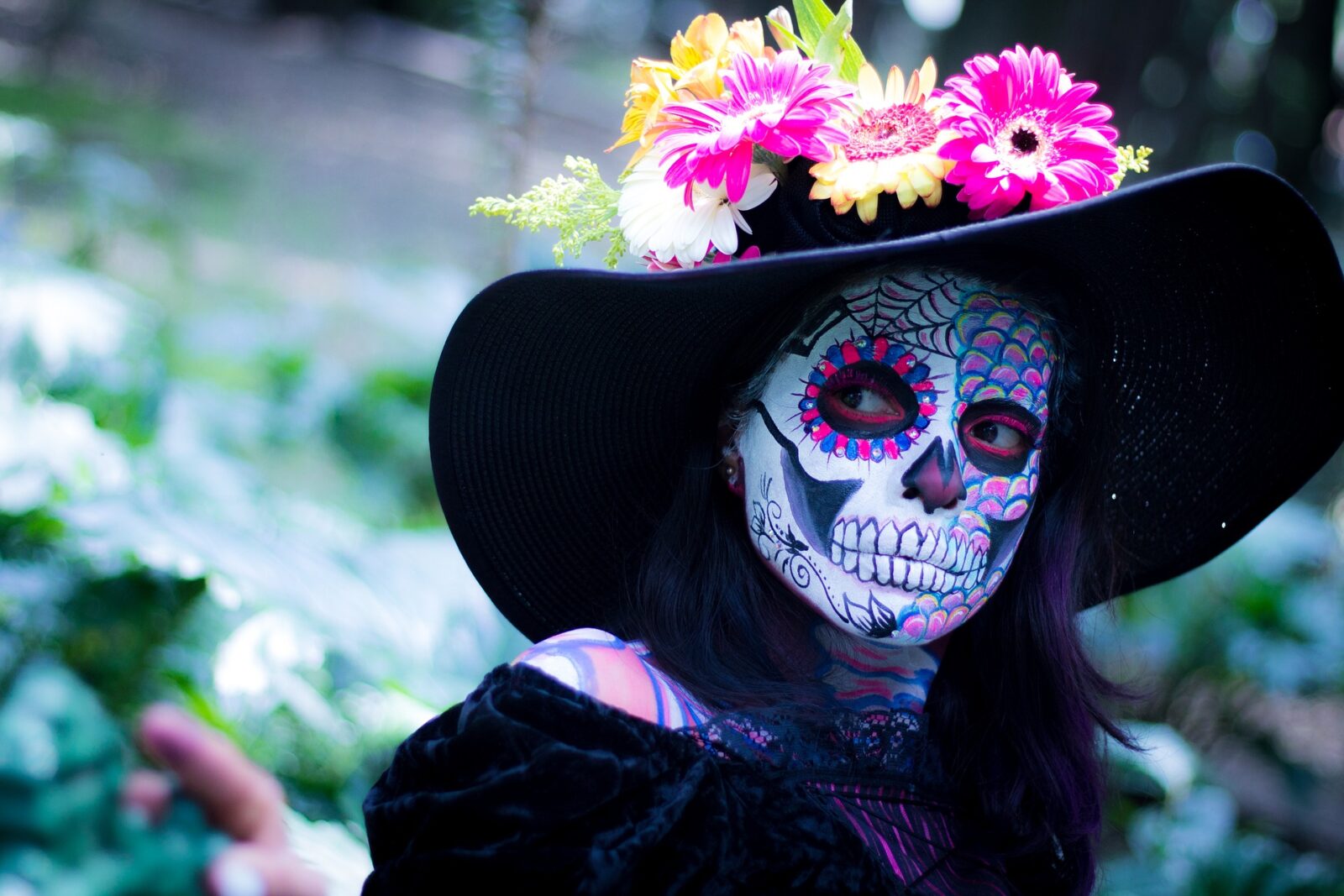Dita and the House of Faces
Dita lives in an old and quite dusty Victorian mansion, stuffed precariously on a hillside in the neighborhood of Lincoln Heights in Los Angeles.
From her bedroom window, decked in red velvet, she can see the towering buildings of downtown. At night she hears sirens, loud voices from the street below, and the screeching of city buses.
On November the first, Dita awakes with a heart so full of love she feels it might burst. Today is the Day of the Dead and she must make offerings to the spirits at the altar she has crafted on the cobwebby mantle.
Dita walks to the bodega on the corner.
“Four bottles of orange soda, a bucket of marigolds, and some tamarind candy, please,” says Dita.
“So much for such a young lady,” says Pedro whose hair is a shock of white.
“I must honor my ancestors.”
Dita places all the offerings on the mantle and says a prayer.
Spirits love treats and treats make spirits happy.
Happy spirits offer protection, luck, and the wisdom to plan a course through life.
Dita walks the halls and looks at all the paintings of ancestors from long ago–the past three generations.
So many faces peering through the gray light.
Dita has candles to light and illuminate the many faces.
There is David. He was only sixteen when he became no more.
He liked video games, enchiladas, fat oranges, and scuffed sneakers.
David was good in school but had a few friends in gangs.
One day he was on a street corner and his soul floated to heaven.
“I light this candle for the face of David,” said Dita aloud.
There is Jose. He was twenty-five when he became no more.
He loved his wife and baby, ramen noodles, and an old watch that kept no time.
Jose worked so hard he missed his child’s first step.
One day he was downtown and his soul floated to heaven.
“I light this candle for the face of Jose,” said Dita aloud.
There is Luis. He was twelve when he became no more.
He loved Pokémon, sweet pineapple tamales, bubble gum, and his brother.
Luis liked to play, run, and kick a soccer ball.
One day he was in a park and his soul floated to heaven.
“I light this candle for the face of Luis,” said Dita aloud.
There is Selena. She was twenty when she became no more.
She was studying art, admired Frida Kahlo, liked Bach, and played the harmonica.
Selena love to sketch in Griffith Park under a flowery tree.
One day she was in Los Feliz and her soul floated to heaven.
“I light this candle for the face of Selena,” said Dita aloud.
There is Marisol. She was thirty-eight when she became no more.
She cleaned hotel rooms, loved all her children, liked CSI, and raspados with berries.
Marisol loved to have parties in her driveway with all her family.
One day she was at a bus stop and her soul floated to heaven.
“I light this candle for the face of Marisol,” said Dita aloud.
There is Samuel. He was six when he became no more.
He loved the Transformers, hot dogs with ketchup, taking naps, and hugs.
Samuel loved to dance and was often wandering away with a jiggle.
One day he was at a shopping center and his soul floated to heaven.
“I light this candle for the face of Samuel,” said Dita aloud.
There is Marta. She was sixty-seven when she became no more.
She was a grandmother to twelve, loved spicy salsa, grew peppers, and roses.
Marta was always walking up and down Boyle Heights.
One day she was buying a burger when her soul floated to heaven.
“I light this candle for the face of Marta,” said Dita aloud.
There is Trudy. She was ten when she became no more.
She loved squishy blueberries, painted faces, and trips to Disneyland.
Trudy liked shooting baskets on warm days at sunset.
One day she was on a basketball court and her soul floated to heaven.
“I light this candle for the face of Trudy,” said Dita aloud.
Dita had no more candles and her bursting heart felt heavy.
She left the hallway full of faces and settled into her velvet chair.
Dita could see splitting clouds and coagulated smog through the window.
And she could hear the wail, always the wail, of sharp sirens.
Dita sometimes did not feel safe.
Danger twisted in shadowy corners.
Danger lurched in the sun and busy streets and parks.
It was so easy for a young girl, like Dita, to be afraid.
But Dita would not hide in her room.
Living was out there even if sometimes you became no more.
She busted onto the street.
“I am here. Not just a face in a house.”
And a woman selling sugar skulls passed by and smiled.
